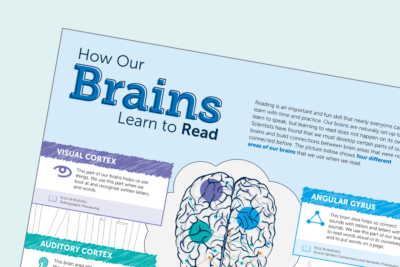Narrowing the Third-Grade Reading Gap Resource Center
Embrace the science of reading to improve student outcomes
Students becoming proficient readers by third grade is one of the most important milestones in K-12 education as it marks the critical transition between learning to read and reading to learn. After this point, the ability to read becomes essential to successful learning in all other subjects.
Three-fourths of all students who do not read proficiently by 3rd grade will never reach full proficiency in future grades. These students are also less likely to attend college and to find living wage jobs later in life. It is clear that learning to read is a critical step in students’ development that helps set them up for successful futures. But it is not always clear to educators how to ensure that students reach this critical milestone.
Our District Leadership Forum has researched this topic thoroughly and has uncovered that science provides a blueprint for effective reading instruction. Explore the below research, tools, and resources on the science of reading to help you pursue the strategies and systems needed to address the reading skill gap.
Research & insights

Narrowing the Third-Grade Reading Gap Research Brief

How our brains learn to read

Design a Summer Reading Camp

The Science of Reading Implementation Guide

Skills-Based Grouping Toolkit
More Resources

2025 Voice of the Superintendent Survey Executive Brief

The Impact of Education Technology Use on Elementary and Middle School Students

2025 Voice of the Superintendent Survey
Great to see you today! What can I do for you?